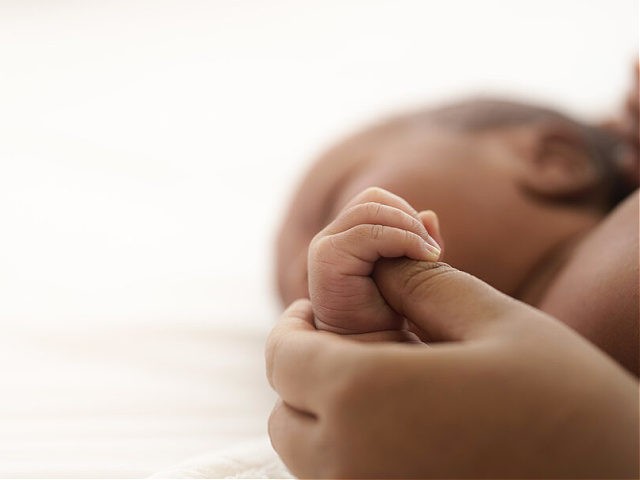An Alabama baby boy who was born at only 21 weeks and one day has been officially named the world’s most premature baby to survive.
Guinness World Records and University of Alabama at Birmingham (UAB) Hospital announced Wednesday that Curtis Zy-Keith Means, who weighed less than one pound at birth, is the most premature infant to survive.
Now 16 months old, Curtis was discharged in April after spending 275 days in the hospital, WBRC and Gray News reported.
The baby’s mother, Michelle Butler, went into labor on July 5, 2020, and gave birth to twins, Curtis and C’Asya, at UAB Hospital.
Curtis Zy-Keith Means had sub-1% chance of survival but he's now a happy and healthy 16-month-old!
— #GWRDay – November 17th (@GWR) November 10, 2021
Dr. Brian Sims, professor of pediatrics in the UAB Division of Neonatology, was on-call when Butler arrived at the hospital.
“Numbers show that babies born so young have little to no chances of survival,” Sims said, according to the news report. “We typically advise for compassionate care in situations of such extremely preterm births. This allows the parents to hold their babies and cherish what little time they may have together.”
According to Sims, the twins had less than a one percent chance of survival.
The report noted Sims “told Butler the care team would take their lead from the babies, see how they respond and let them tell the team what path to take.”
Though C’Asya passed away one day after birth, Curtis’ condition improved.
“His heart rate and oxygen levels increased with resuscitation and additional oxygen,” WBRC and Gray News reported. “He was fighting for life.”
Dr. Colm Travers, an assistant professor in the Division of Neonatology who researches periviable infants, those babies born at the very limits of viability, said he was not aware of an infant who survived at a younger gestational age than Curtis.
The UAB Golden Week Program, a multidisciplinary team of medical professionals, worked to provide Curtis with the supports he required.
“When taking care of severely premature babies, you have to take it step-by-step and day-by-day,” said Travers, who is co-director of the program.
“The program combines evidence-based medicine and best practices to increase a premature baby’s survival chances during their first week of life,” he said. “The program has resulted in a marked reduction in mortality or severe intraventricular hemorrhage within the first week of life.”
WBRC and Gray News reported:
Curtis continued defying odds, to his family’s and the team’s amazement. He survived the first week then the first month.
Curtis received around-the-clock care over the next nine months. Speech therapists worked to help him start using his mouth and learn to eat. Respiratory therapists supported his breathing through various efforts as he came off the breathing machine. Nurses provided daily care, from checking vitals to soothing him to sleep, to supporting Butler as she learned the intricate care Curtis needed.
The team celebrated when Curtis was finally discharged in April.
“Being able to finally take Curtis home and surprise my older children with their younger brother is a moment I will always remember,” Butler said.
“It was a difficult journey, but I am grateful for the UAB team and their constant support,” she added. “They took the time to educate me and made sure I knew what was happening every step of the way. They truly cared about my son and me.”
According to the report, Travers researched records during Curtis’ stay at UAB, ultimately finding there had not been a more premature infant who has survived.
After receiving Butler’s permission, Travers consulted with Guinness World Records to confirm his instinct.

COMMENTS
Please let us know if you're having issues with commenting.